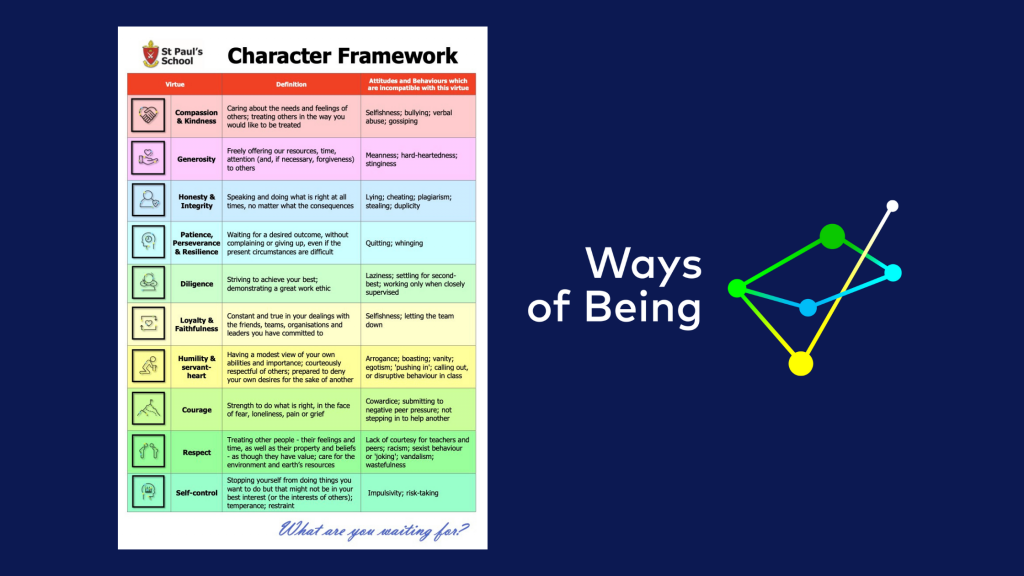
What is “Ways of Being”? Virtue #1: Kindness and Compassion
In each of the 60+ classrooms in the Secondary School, you will find a poster headed “St Paul’s School Character Framework”. Versions of this framework also appear in the Student Diaries. Why does this framework feature so prominently in our School and in our day-to-day conversations with students?
As I wrote in my last e-News article, it is because we believe that an education should not be judged on what a student knows, nor even on what a student can do. Rather, we are interested in what type of person the student is becoming. Increasingly, around the world, holistic education is expressed in an emphasis on character development, in schools that have a vision to teach “children to become good people and good students at the same time” (Garber, 2014, p. 162).
Our Character Framework features ten virtues, and the virtue at the top of the list is “Kindness and compassion”. On the poster, and in our conversations with students, we define Kindness and compassion in the following terms –
Caring about the needs and feelings of others; treating others in the way you would like to be treated |
You will note a strong implicit link with the “Golden Rule” (Do unto others as you would have them do unto you).
However, experience teaches us that students don’t always get it right. They aren’t always kind and compassionate and, invariably, a teacher or House Leader or I will end up having a conversation about that. The Framework has already anticipated these situations, and alongside each virtue is a list of what we call “Attitudes and Behaviours which are incompatible with this virtue”. In the case of Kindness & Compassion, these “anti-virtues”, or vices, are listed –
Selfishness; bullying; verbal abuse; gossiping
I regularly tell both students and parents that we aren’t really a rules-based school. Rather, we are a character-based school. Rather that simply saying “Don’t do this or that”, we say to them “Strive to become a person of good character. Cultivate these virtues.
 Mr Nigel Grant
Mr Nigel Grant
Executive Director of Faith and Community
